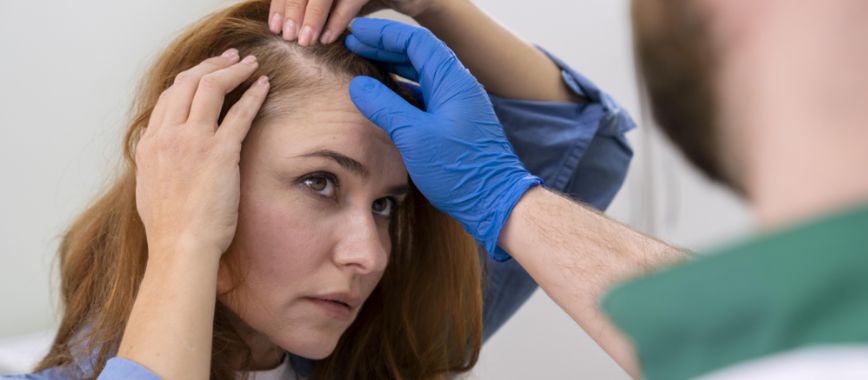Search Healthy Tips here
- Please wait..
Explore categories
What are the reason behind hair fall?

Hair loss is a common concern that affects both men and women. It can have various causes, and understanding them is essential for effective prevention and management. In this blog post, we will explore some of the common reasons behind hair fall, shedding light on the factors that contribute to this condition and providing insights into preventative measures.
Genetic Factors:
Genetic predisposition is a significant cause of hair loss. Androgenetic alopecia, also known as male or female pattern baldness, is the most common form of genetic hair loss. It is influenced by inherited genes and hormone levels. While it cannot be completely prevented, certain treatments can slow down the progression of hair loss.
Hormonal Changes:
Hormonal changes can disrupt the hair growth cycle and lead to hair loss. Events such as pregnancy, childbirth, menopause, and hormonal imbalances can trigger excessive shedding. Hormones like dihydrotestosterone (DHT) can cause hair follicles to miniaturize and produce thinner and shorter hair strands.
Nutritional Deficiencies:
A balanced diet is essential for healthy hair growth. Deficiencies in vital nutrients, such as iron, zinc, vitamin D, and biotin, can contribute to hair loss. Ensuring a well-rounded diet that includes a variety of fruits, vegetables, lean proteins, whole grains, and healthy fats can help prevent nutritional deficiencies and support hair health.
Physical and Emotional Stress:
Physical and emotional stress can disrupt the normal hair growth cycle and lead to increased hair shedding. Events such as surgery, illness, significant weight loss, or emotional trauma can trigger a condition called telogen effluvium, where a large number of hairs enter the resting phase and eventually fall out. Managing stress through relaxation techniques, exercise, and self-care practices can help minimize hair fall.
Medical Conditions and Medications:
Certain medical conditions, such as thyroid disorders, autoimmune diseases (like alopecia areata), scalp infections, and chronic illnesses, can contribute to hair loss. Additionally, certain medications like chemotherapy drugs, antidepressants, and blood thinners may cause temporary or permanent hair loss as a side effect.
Excessive Styling and Heat:
Excessive use of styling tools (like curling irons, straighteners) and harsh chemical treatments (like perming, bleaching, colouring) can damage the hair shaft and lead to breakage and hair loss. It is important to use these tools and products judiciously, protect hair from excessive heat, and give it regular breaks from chemical treatments.
Poor Scalp Health:
The health of your scalp is vital for healthy hair growth. Conditions like dandruff, seborrheic dermatitis, and scalp infections can cause inflammation and disrupt the hair growth cycle. Maintaining good scalp hygiene, using gentle shampoos, and seeking appropriate treatment for scalp conditions can help promote a healthy environment for hair growth.
Understanding the reasons behind hair fall is essential for effective prevention and management. While some causes, like genetic factors, may be beyond our control, there are steps we can take to minimize hair loss. Maintaining a healthy lifestyle, managing stress levels, ensuring a balanced diet, practicing good scalp hygiene, and being mindful of hair styling practices can all contribute to maintaining healthy hair.
If you are experiencing excessive or prolonged hair loss, it is recommended to consult a healthcare professional or a dermatologist to identify the underlying cause and explore appropriate treatment options. Remember, early intervention and adopting preventive measures can help you preserve the health and vitality of your hair.










